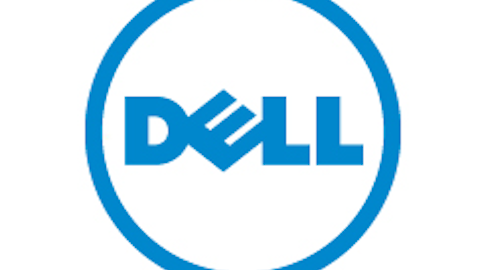Earlier this month, legendary corporate raider Carl Icahn announced via Twitter that he owned a stake in Apple Inc. (NASDAQ:AAPL). This is the second time this year that Icahn has shaken up the tech world, following his activist investment in troubled PC maker Dell Inc. (NASDAQ:DELL).
In the case of Dell Inc. (NASDAQ:DELL), many investors have viewed Icahn as a savior, believing that he is the only one who can stop company founder Michael Dell from “stealing” the company in a management buyout. By contrast, a number of investors have fretted that Icahn poses a big threat to Apple Inc. (NASDAQ:AAPL). They worry that his demands for a large stock buyback will cause Apple Inc. (NASDAQ:AAPL) to fall behind rivals on the innovation curve.

Ironically, the opposite is probably the truth. Carl Icahn poses a big threat to Dell Inc. (NASDAQ:DELL), as his ability to throw up roadblocks to the company’s go-private deal is distracting the management team just when the company faces a precarious situation. By contrast, Icahn has no leverage vis-a-vis Apple Inc. (NASDAQ:AAPL)’s management. He does not (and cannot) own a meaningful percentage of Apple’s stock due to the company’s massive market cap. Moreover, there is no reason why a stepped-up buyback should interfere with Apple’s core business or innovation.
Icahn’s plan
Icahn thinks that Apple is significantly undervalued and that the solution is a massive stock buyback. Apple Inc. (NASDAQ:AAPL) is already implementing a substantial capital return program — which includes approximately $60 billion in share repurchases between 2013 and 2015 — but Icahn wants an even bigger and faster buyback.
Icahn believes that Apple should spend an additional $150 billion repurchasing stock at an average price of $525/share (slightly above the current price). He claims that Apple could fund these purchases by issuing $150 billion in debt at a blended interest rate of 3%. This would allow the company to avoid paying steep repatriation taxes on its more than $100 billion of cash held overseas.
According to Icahn, if Apple follows his capital allocation strategy, the stock would rise to $625 following the buyback, even if the company’s underlying earnings did not change. The catalyst would be a significant reduction in the share count, boosting EPS. Assuming moderate earnings growth, Icahn thinks the stock could return to its all-time high near $700.
A bad trade-off?
In his initial tweets about Apple Inc. (NASDAQ:AAPL), Icahn stated that he had spoken to Apple CEO Tim Cook about his ideas and that they planned to speak again soon. Last week, Icahn took to Twitter once again to announce that he will be having dinner with Cook next month to discuss the magnitude and timing of Apple’s buyback.
This ongoing dialogue between Icahn and Apple’s management has set some investors’ teeth on edge. Their main argument is that if Apple significantly increases its stock buyback, that will crowd out investment in research and development and other initiatives to boost innovation. This would in turn cause Apple to fall behind competitors, leading to a collapse in profitability.





